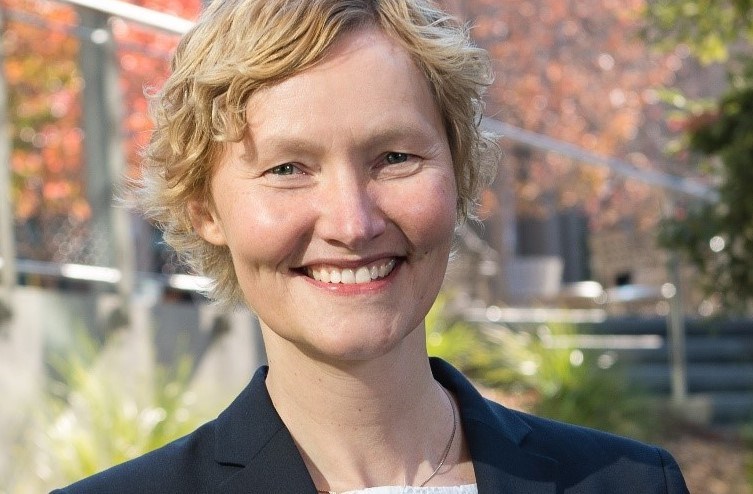Stock Returns and Federal Reserve Communications
nov. 19, 2020
The effect of central banks on asset markets is very large. Informal communication channels play an important role in this. Here is how the process works.

Professor Annette Vissing-Jorgensen from Haas School of Business, University of California Berkeley is the receiver of Skandia’s 2020 research award on long-term savings. She receives the award for her relevant contributions to banking, insurance, and financial services. She is particularly recognized for her work on the interactions between economic policy, regulation, and capital markets.
What can we learn from your research?
– As an investor, the main lesson I have learned from my recent work is that the effect of central banks on asset markets is very large. Of course we know that central banks control short-term risk-free rates but their large effect on stock markets was not well documented until recently.
Add in the effects of various quantitative easing programs on both longer-term government bonds, mortgage-backed securities and corporate bonds, it is becoming clear that as an investor your returns will be very affected by monetary policy.
You have studied how the communication of the American Federal Reserve influences the stock market. Are there any lessons from your research that we can apply in a Swedish setting?
– It turns out that the Federal Reserve's effect on the stock market is not confined to the US. If you look at developed-economy stock markets excluding the Fed, they move about as much with Federal Reserve policy as US markets. This suggests that in an open-economy setting, policy in one country affects other countries.
Another lesson is that if we want to assess the total effect of central bank policy on a given market, it is important to not only focus on the policy announcement dates since a lot of information may be coming out on other days via media interviews or other informal channels. I do not have a sense of how much Riksbanken communicates outside of formal announcements or speeches, but my sense is that more informal communication via the press is important in the ECB context as well.
If you had the power to change anything in the FOMC (Federal Open Market Committee) process – what would it be and why?
– I would try to simplify the FOMC's communication, making sure that most communication is done in public forums with less use of behind-the-scenes communication via newspapers and Fed watcher newsletters. That type of communication puts less sophisticated investors at a disadvantage since it is very time consuming and subtle to follow. Aside from investment fairness considerations, policy works better if people understand it and have confidence in the central bank being able to manage recessions and crises.
Is there anything in your research that is useful to know for a person saving for retirement?
– Trade less! If sophisticated investors are at an advantage due to spending a lot of resources predicting the next central bank move, you will be at a disadvantage trading with them. But you can easily protect yourself against this by not trading much, investing for the longer run.
What do you think will be the most important factor influencing the stock market in a five-year horizon?
– The COVID vaccines: Will they work well without major side effects and will enough people be willing to get vaccinated.
What are you most proud of in your career so far?
– Some of my work may have affected actual policy choices. I have worked on unconventional monetary policies, which is an area we are all still learning about. It takes a lot of small steps forward by a lot of researchers to get this right. Collectively we create information that is essential for good policy choices.
Do you have any dream research project that you would like to work on in the future?
– I would like to think more about policies to reduce inequality in economic opportunities. What kind of investments in people and their human capital are most effective for them individually and for the overall productivity of the economy? In macroeconomics we often focus on aggregate outcomes but as more individual level data becomes available we will be able to get much closer to answering these questions. Sweden is at the forefront of these data developments.
